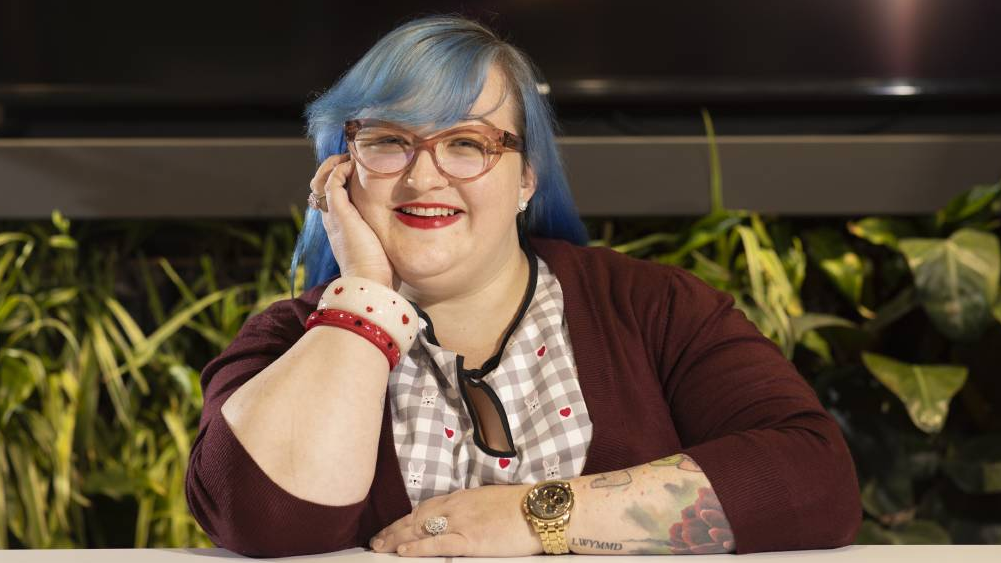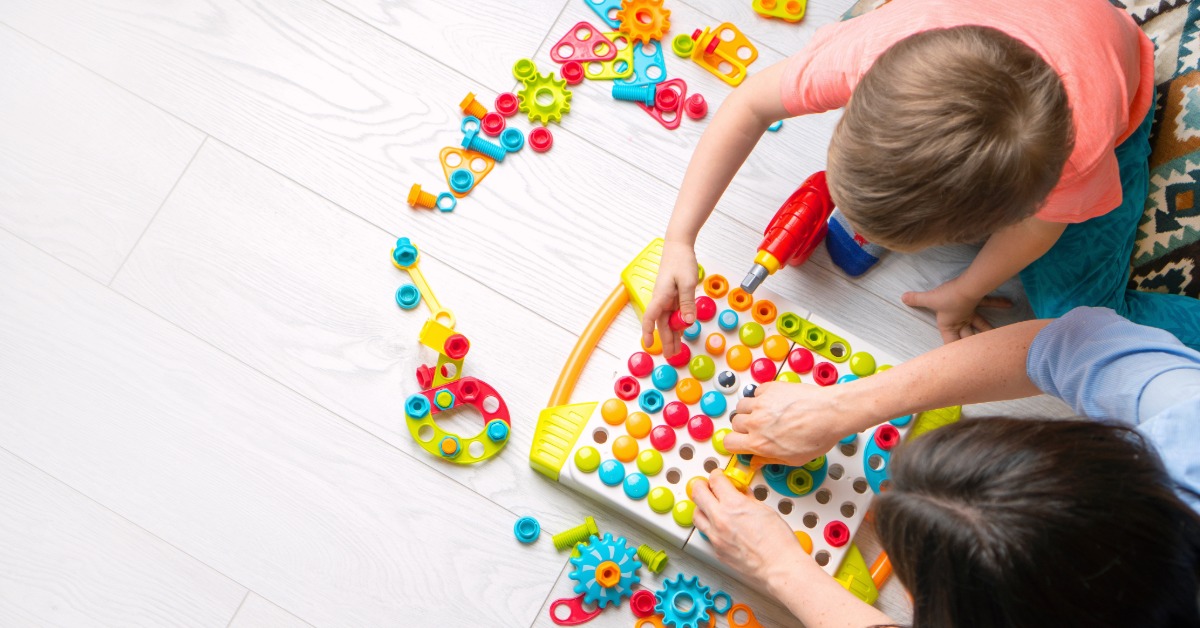International Day of People with Disability 2021: Reflections from our openly autistic People & Culture Lead

Today, December 3 2021, I am celebrating my fifth International Day of People with Disability — the fifth one that I’ve been aware of at least.
5 years ago, at the age of 29, I was diagnosed as autistic. I was born this way.
The last 5 years have gone by in a flash, but it has been a time of enormous growth and change for me. I honestly don’t know if my 29 year old self would recognise me today. I think that’s a good thing.
When I first heard the news on April 26, 2016, I experienced an intense mixed bag of emotions at the life changing news I’d just received. I actively sought a diagnosis, but nothing prepared me for how that moment would actually feel.
I mourned the loss of a potentially safer and supported childhood over the tortured experience I’d received at the hands of bullies of all ages. I was angry that (up until this point) I’d been so easily written off as ‘a bad person’, ‘rude’, ‘a monster’ and other names I won’t publish on my workplace’s website. And I felt relieved. Relieved to know that I wasn’t an evil/broken/bad person. I was just different. A completely natural and human form of different.
Around 3 weeks after my diagnosis I randomly ‘outed’ myself one evening on Twitter. I announced to my corner of the digital world “I have Asperger’s”. I used person-first language and a term that hasn’t existed in the DSM since 2013. The complete opposite of what I would use today. I was in sense-making mode and unknowingly had nearly 30 years of heavy internalised ableism and stigma waiting to be discovered and unpacked. To be clear, the language an autistic person uses to describe themselves is entirely their choice. Everyone is different in that regard and that’s OK.
My world opened up that night. Other autistic people reached out with support and kindly offered me resources on identity-first language (like this great piece from Kristy Forbes!). As soon as I saw it, something clicked. Everything made sense. I’m an autistic person not a person-who-keeps-her-autism-in-her-purse! It doesn’t pay rent. I can’t misplace it like it’s my glasses or my keys. It’s my brain. It’s the lens through which I experience the world. It’s part of me in the most beautiful way possible.
It would eventually take me well over two and a half years to fully embrace and self-accept my autistic identity, but from that moment onwards, I was at least on the right track. The right track for me. Again, there’s no right or wrong way to be an autistic person and there’s an enormous amount of diversity in our community.
I started writing about my experiences and giving media interviews and talks on conference stages around Australia. I became somewhat of a thought leader in this space known for actively sharing lived experience examples. I helped people. I’ve lost count of the number of women-identifying and non-binary people who have come to me and said that my work led to their diagnosis process. I couldn’t be more grateful or proud to have had that impact.
I learned how to ‘take the mask off’. ‘Masking’ is a term to describe the actions an autistic person takes to hide their autistic traits and ‘act’ neurotypical. It’s something we do to protect ourselves from bullying and/or rejection from non-autistic people who quite frankly hold an enormous amount of power over our opportunities and safety. Masking might keep non-autistic people happy, but it comes at a high personal cost for autistic people. It takes a lot of energy to act like another person! You also lose a sense of who you authentically are underneath the mask. When I was diagnosed at 29, I realised I had absolutely no idea who I was when I wasn’t pretending to be someone who met societal standards of worth. I had to rebuild myself in so many ways. I still carry the scars from years of always having to be ‘perfect’.
My confidence and knowledge maturity around my autism grew. I started calling out bad behaviour and refused to be a ‘nice’ disabled person who sat quietly and didn’t rock the boat. I’m always polite and respectful, but I’m fearlessly assertive and that doesn’t always go down well. My radical self-acceptance and pursuit of equity and respect was sinking those boats. And I’ve paid for that as well.
Non-autistic and non-disabled people don’t always like having their (often unknowingly) ableist belief systems questioned. They don’t always respond with grace when called out or educated on the impacts of their actions no matter how good their intentions are.
My thinking continued to evolve over time. My approach to autism advocacy changed. I stopped actively disclosing every time I gave a conference talk or media interview and I learned to set functional boundaries. No, I will not answer to the comfort levels of the non-disabled people I offended when raising my support needs. And no, I’m not a human learning curve or a walking teachable moment that exists to show you how to be a decent human being.
In early 2021, I started thinking about what I wanted for my career. I’d reached what I’d thought was my dream job but I wasn’t satisfied. I was living in two worlds and I wanted to have it all. I wanted to bring user experience (UX) research and Diversity & Inclusion together into one impactful and meaningful role. I designed it myself, floated it past a mentor and now I’m the People & Culture Lead here at Parbery.
I am an openly autistic disabled senior leader with the ability to affect genuinely positive change. I am acutely aware of how rare that is in a global workforce that systematically blocks meaningful and choice-driven participation to the autistic and disabled communities. My first post-diagnosis job hunt lasted nearly 3 years. In five short years I’ve gone from long-term entry level employment to leading a business function for an entire organisation. I feel a strong responsibility to use my voice for good.
The theme for International Day of People with Disability 2021 is: Leadership and participation of persons with disabilities toward an inclusive, accessible and sustainable post-COVID-19 world.
In previous years, I might have implored you to take a strengths-based approach. I might have attempted to sell you on the benefits of autistic inclusion, acceptance and awareness. Not this year.
As I’ve gotten older and more mature in my autism advocacy and thinking, I’ve come to realise I despise the strengths-based approach as much as I detest the tragedy narratives and stereotypes.
As an autistic person, I shouldn’t have to be extraordinary to be treated like a human being. I shouldn’t have to prove my worth or justify my right to basic respect, kindness and entry to standards of living. Neither should any other disabled person. Why on earth do we have to barter our way to humanity? We should be free and safe to be as mediocre as we like. Non-disabled people certainly are.
The strengths-based approach is fundamentally flawed. Instead of bringing about meaningful, sustainable change to the world, it caters entirely to the existing mindset of the non-disabled majority. Instead of educating them on effective and impactful allyship and holding them accountable, it seeks to sell us to them in a way their current mindset will be able to process.
I want change. Real, meaningful, widespread mindset-based change.
To me, leadership and participation of disabled people means providing genuine opportunities for a diverse and intersectional range of disabled people to lead the work ourselves.
Yes, you read that correctly. Ourselves. Not our parents, carers, teachers, non-disabled ‘experts’. No. Us.
I know there are people out there who will genuinely find the idea of disabled people taking the lead confusing and hard to believe. I’ve spent most of my career being told that I ‘must be mistaken’ and that it ‘couldn’t possibly’ be me that had been granted that influence or responsibility. Ableism runs deep in societal attitudes and beliefs whether you’re aware of it or not. You can start to challenge that mindset within yourself and others by recognising disabled people as completely valid human beings with independent thoughts, opinions, experiences, and feelings.
You also need to recognise that you have no idea what it is like to live our lives and through no fault of your own, there’s a chance you never will. I say ‘chance’ because I think people often forget that the disabled community is the one slice of diversity they are always a split second away from joining. You could become disabled at any moment and if you’re lucky to live long enough, that chance increases significantly.
Merely talking to us about our lives is performative inclusion at best and it’s not a good thing. We need to advance much further and ensure the lived experiences and direct knowledge of disabled people are embedded every step of the way. We also need to ensure diversity and intersectionality is represented because those layers of experience can change everything.
Give us multiple seats at the decision making table from the word go. We know what’s needed for us all to come together to achieve equitable participation and leadership.
Ashlea McKay is People and Culture Lead at Parbery.


